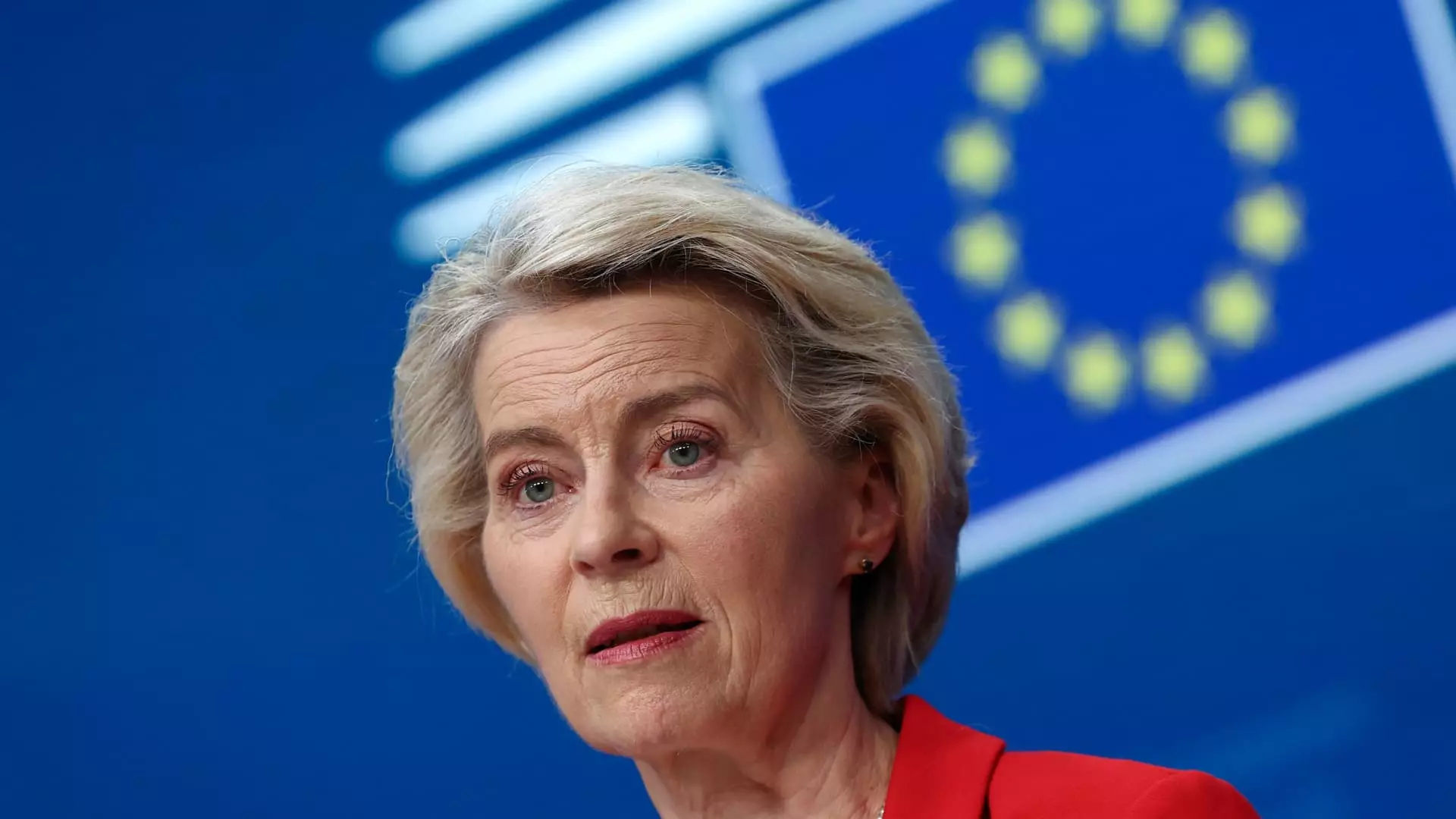In the current maelstrom of global trade tensions, the European Union faces an unprecedented test of its resilience and strategic integrity. The recent decision to delay retaliatory tariffs as negotiations unfold is a temporary reprieve, but it masks a larger structural weakness within the EU’s economic sovereignty and diplomatic resolve. Europe’s leadership must move beyond the reactive posture of delay and deflection. The core question is: Should the EU continue playing a passive game, allowing the US to dictate terms under the guise of “negotiation,” or should it stand firm and assert its economic independence?
The EU’s reliance on delicate diplomacy risks perpetuating a cycle of capitulation caused by aggressive American tactics aimed at restructuring global trade in favor of short-term U.S. political interests. As the EU’s major exports—ranging from pharmaceuticals to automotive manufacturing—face the threat of tariff escalations, Europe cannot afford to be subordinated to the volatile whims of an often unpredictable and self-interested partner. Its economic systems, social welfare policies, and global reputation depend on a principled stance that prioritizes fairness, stability, and long-term sovereignty over transient negotiations and concessions inspired by fleeting political pressures.
The Illusion of Negotiated Justice: Why Europe Must Push Back
The narrative spun by Brussels and Washington hinges on the idea that negotiations are the pinnacle of diplomatic maturity. Yet, the truth is that many of these negotiations have historically favored stronger economies and corporate interests while marginalizing the concerns of smaller or less powerful partners. For Europe, simply delaying tariffs does not translate into strategic gains. It provides only a brief illusion of control, while the underlying power dynamics remain skewed in favor of the U.S.
Europe’s leaders must scrutinize whether the current approach genuinely seeks equitable trade or merely capitulates to America’s obsession with deficits labeled as “national security threats.” While Trump’s assertions about the U.S. trade deficit are a convenient political tool, they reflect a fundamentally flawed understanding of global economic interconnectedness. Europe should view these tactics not as genuine negotiations but as a display of leverage that threatens the very foundation of fair trade principles the EU espouses.
Instead of meekly stepping back, the EU must harness its collective strength and demand a renegotiation rooted in fairness. It is time for Europe to recognize that engaging in transactional diplomacy without firm boundaries undermines its economy, its workers, and its future. A robust stance—calling out unfair practices and insisting on rules grounded in mutual respect—is not aggression; it’s a necessity rooted in justice and long-term stability.
Global Ramifications: The Cost of Weakness in a Power-Driven World
The ongoing tit-for-tat tariffs and threats are not mere bilateral disputes—they have the potential to reshape global economic paradigms. The EU and U.S. combined account for roughly 40% of global GDP, and their trade policies carry ripple effects that can destabilize emerging markets and global supply chains. Industries from French winemakers to German automakers are weighing their futures against the shifting tides of American protectionism and European reticence.
Furthermore, these conflicts deepen the divide in an already fractured global economy. Instead of working collaboratively to address shared challenges like climate change, technological innovation, or health crises, Europe risks becoming a pawn in America’s strategic game designed to diminish China’s influence or assert unilaterally-driven economic dominance. It is a reckless gamble—one that can backfire, leading to increased economic nationalism, job losses, and weakened global cooperation.
Europe’s response should not be driven by fear or the need to appease an unpredictable U.S. administration. Instead, it should be guided by a firm belief in multilateralism, fair trade, and social justice. The EU’s policymakers must recognize the danger in acquiescence and push instead for a recalibration of global economic rules that favor collaboration over conquest, fairness over forced concessions, and accountability over unilateral dominance. Anything less would be a betrayal of the ideals that Europe holds dear—namely, a fair and balanced global economic order rooted in cooperation and mutual respect.

